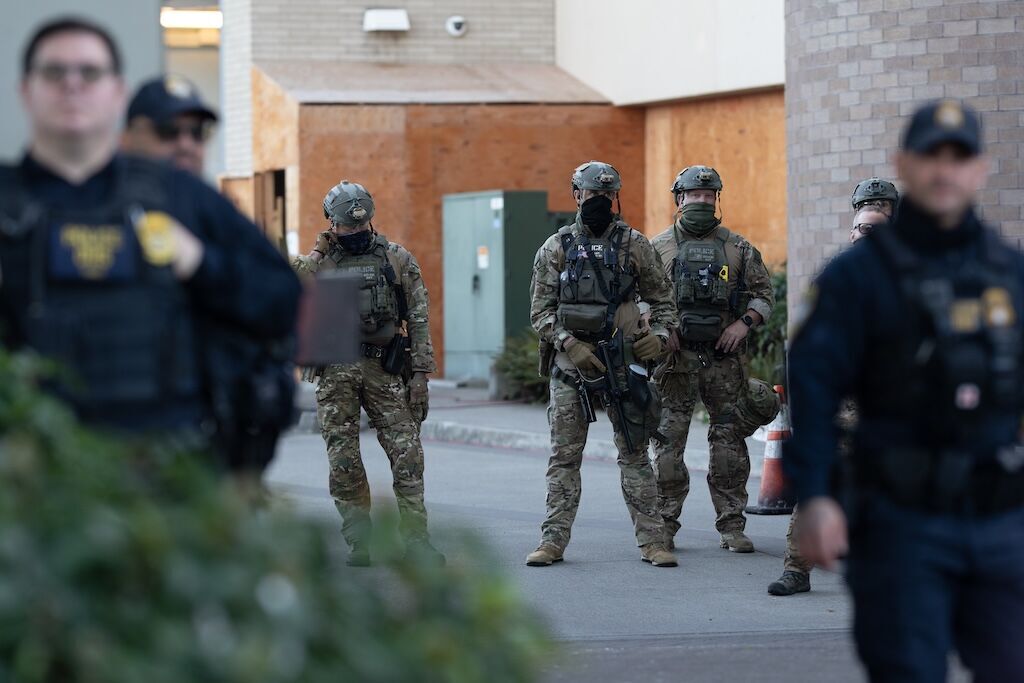Colorado appeals court, 2-1, rules defendant not entitled to arresting officer’s discipline file

In a divided ruling, Colorado’s second-highest court found a man convicted of assaulting an Arapahoe County sheriff’s deputy was not entitled to a review of the victim’s personnel records and potential history of excessive force.
Marcos Casillas did not dispute that he was guilty of resisting arrest and obstructing a peace officer, nor that he struck Deputy Peter Moore during his arrest. But Casillas argued he was defending himself against Moore’s excessive force, and access to Moore’s disciplinary history might have cast doubt on the deputy’s narrative at trial.
By 2-1, a panel for the Court of Appeals decided a trial judge acted properly by declining to look at Moore’s personnel file for materials relevant to the case.
“Casillas didn’t claim that Deputy Moore had used excessive force against him,” wrote Judge Jerry N. Jones in the June 8 opinion. “Casillas’s defense to the assault charge naming Deputy Moore as the victim was that he was frustrated and trying to get free; he didn’t intentionally or knowingly assault Deputy Moore.”
That may have been true at trial, wrote Judge Neeti V. Pawar in dissent, but it was wrong to look at what Casillas chose to argue only after he was blocked from seeing the deputy’s disciplinary history.
“Notably, there is no footage showing Casillas kicking Deputy Moore or Deputy Moore recoiling from being kicked,” she explained. “Accordingly, the only evidence that Casillas assaulted Deputy Moore by kicking him was Deputy Moore’s testimony, which placed his credibility at issue.”
Case: People v. Casillas
Decided: June 8, 2023
Jurisdiction: Arapahoe County
Ruling: 2-1
Judges: Jerry N. Jones (author)
David H. Yun
Neeti V. Pawar (dissent)
Background: Appeals court clarifies defendants’ ability to access officers’ personnel files
Casillas is serving a 20-year sentence after jurors convicted him of a carjacking and for belligerent conduct during his arrest. Adams County deputies first encountered Casillas and the stolen car in Deer Trail, where he resisted arrest. Arapahoe County deputies then arrived and, in the attempt to transfer Casillas to their custody, Casillas continued to be uncooperative.
Multiple deputies held Casillas down for between 45 minutes and one hour, as he continued to struggle. Casillas ended up kicking two people – Moore and an Adams County deputy. At Moore’s direction, paramedics injected Casillas with a chemical sedative.
Prosecutors charged Casillas with assaulting each of the deputies. In response, Casillas sought the disciplinary histories, internal investigations and excessive force complaints against the officers who were involved in his arrest. The Adams County Sheriff’s Office did not move to block the request, but Arapahoe County did.
A trial judge declined to review and release the Arapahoe County records, including Moore’s personnel file.
On appeal, there was a dispute over whether Moore’s credibility as a witness mattered in determining if Casillas was defending himself against excessive force. The government claimed Moore’s body-worn camera captured the arrest, meaning there was objective evidence of whether he used excessive force. Casillas countered that, even if the recording existed, it was not part of the evidence.
“Documentation of a history of using excessive force, however, could shed light on what occurred,” wrote public defender Mark Evans.
The Court of Appeals panel’s majority believed Casillas had failed to show Moore likely had a history of misconduct and that it was relevant to his case. Jones, writing for himself and Judge David H. Yun, found there was “no reason to believe, based on the nature of Casillas’s interaction with Deputy Moore, that there are ‘other’ complaints of excessive force.”
Pawar countered that Casillas’ lawyer had clearly argued to the trial judge that Moore physically restrained Casillas and directed paramedics to sedate him. It was more likely that deputies would have used excessive force against Casillas, the attorney said, if they had a habit of using excessive force.
“In other words, that Casillas was subjected to an extended restraint and involuntarily injected with sedatives at Deputy Moore’s direction is, in my view, enough to set forth a specific factual basis … that there may be records related to Deputy Moore’s use of force in this incident or others,” Pawar wrote. “Far from being a ‘fishing expedition,’ Casillas’ subpoena was supported by specific facts.”
“With all due respect to our colleague,” wrote Jones in response, “we don’t see the connection.”
The case is People v. Casillas.













